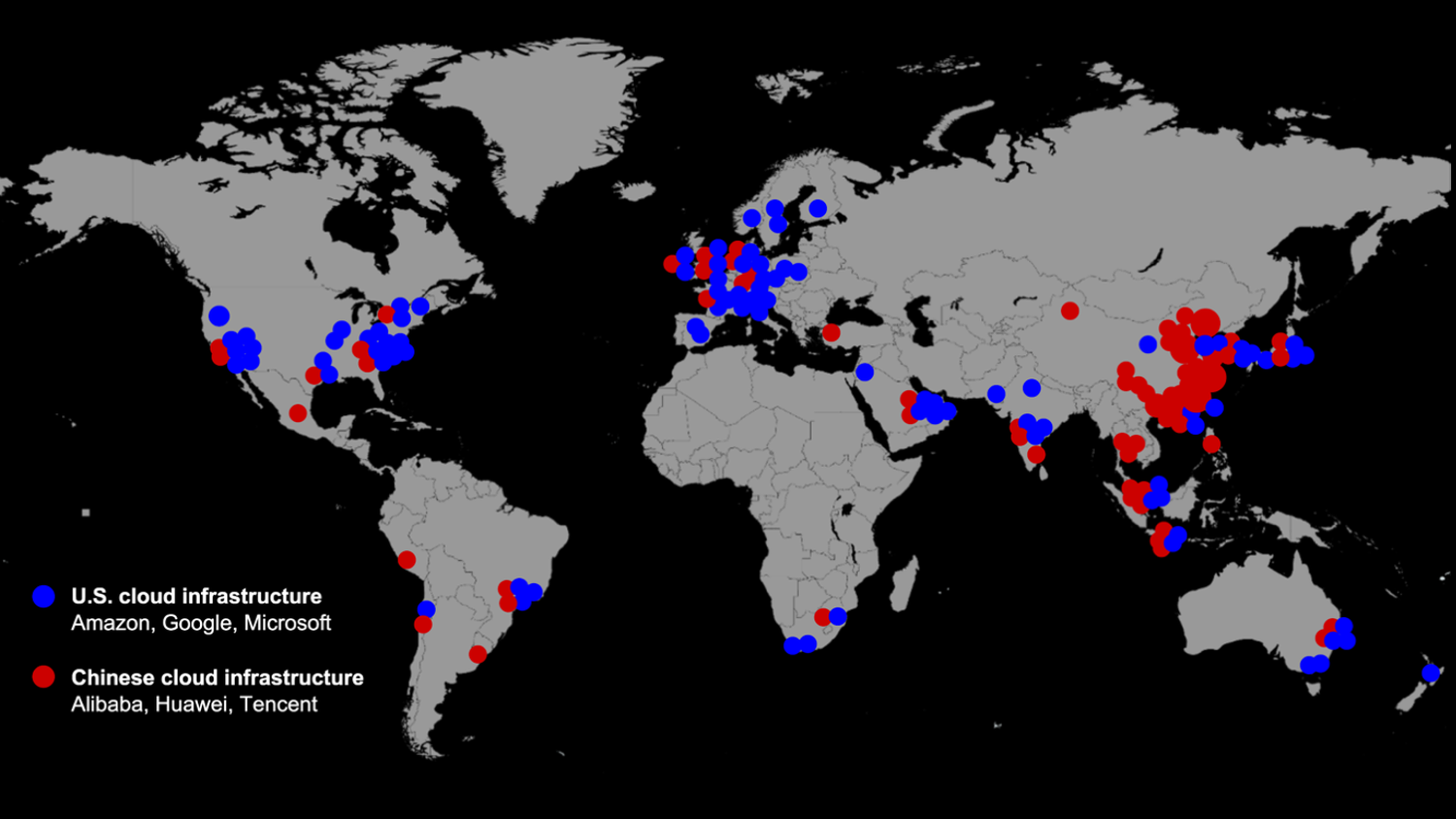The Geopolitics of Cloud Computing: How State-Firm Interactions Shape the Geography of Computation to Produce Digital Sovereignty and Dependence
1 January 2025 – 31 December 2029
Funded by the European Research Council
Today’s digital superpowers, the United States and China, exploit other countries’ reliance on their digital infrastructures for foreign policy and national security advantage. Governments in Europe, Asia, and elsewhere try to navigate this great power competition to retain “digital sovereignty”. A pivotal moment in these technology geopolitics is the ongoing “shift to cloud”. Instead of data being stored and processed on users’ own devices and on servers situated at organizations’ own premises, storage and processing are increasingly moving into “hyperscale” cloud data centres dotted around the world. This concentration generates significant economies of scale, decreases capital costs for firms and public sector organizations, and improves energy efficiency. However, it also creates new systemic risks, and since most of these data centres belong to U.S. and Chinese technology giants, will dramatically deepen other states’ technological dependence on them—unless smaller states succeed in shaping the shift to their advantage.
In the GEOCLOUD project we will for the first time map this changing geography of computation and examine how different states are attempting to shape it with policies. Focusing on the digital superpowers’ key battlegrounds of Northern Europe and East/Southeast Asia, we will develop ways of measuring on a country level how exposed public sector and financial sector digital services are to cloud providers and how this exposure is evolving over time. We will use statistical analyses and interviews with policy makers and cloud executives to assess how effective government policies have been at shaping this exposure and at influencing the ownership and locations of hyperscale data centres. We will moreover theorize how government policies are interacting with large technology firms’ business strategies to generate new geopolitical dynamics that shape this geography of computation—and with it our prospects of digital sovereignty and dependence.
People

Linh Ngo
Graduate researcher, Aalto University
Publications
Press coverage
-

Where Chinese Or American Tech Is Used In Cloud Data Storage
Research from Vili Lehdonvirta, Boxi Wú and Zoe Hawkins at the University of Oxford and Finland’s Aalto University shows which countries are home to which kind of data centers.
-

America v China: who controls Asia’s internet?
Of a panel of 12 Asian countries, seven have a majority of Chinese-run cloud clusters, according to a study by Vili Lehdonvirta and colleagues at the Oxford Internet Institute.






